3040006181941
Price Quote Get an up to date pricing and availability quote for this product. Order online or over the phone.
Quality Commitment
Serving our customers with quality and safety first.
- AS9120 Certified
- Audited supply chain
- ITAR Registered
- DDTC Registered
- HAZMAT Certified
- Customer service objectives
- Every product 100% inspected

3040-00-618-1941 Specification Set by the OEM (see RNCC code 3)
2.188in. ⁓2-13/64"
1.750in.
1.365in. and 1.375in. ⁓1-3/8"
1.1240in. and 1.1250in.
0.4530in.
1.031in.
threaded
unf
0.438in. ⁓29/64"
125 microinches both bearing flats
steel, fed std 66, aisi/sae 1018 or steel, fed std 66, aisi/sae 1020 or steel, fed std 66, aisi/sae 1022
steel comp 1018 or steel comp 1020 or steel comp 1022
fed std 66 fed std 1st material response or aisi 1018 assn std single material response or sae 1018 assn std single material response and fed std 66 fed std 2nd material response or aisi 1020 assn std single material response or sae 1020 assn std single material response and fed std 66 fed std 3rd material response or aisi 1022 assn std single material response or sae 1022 assn std single material response
rectangular, single bolt secured
Cross Reference Parts Part numbers that meet the specification outlined on this page and set by the OEM
Identification Item Identification Guide (IIG) and Item Name Code (INC)
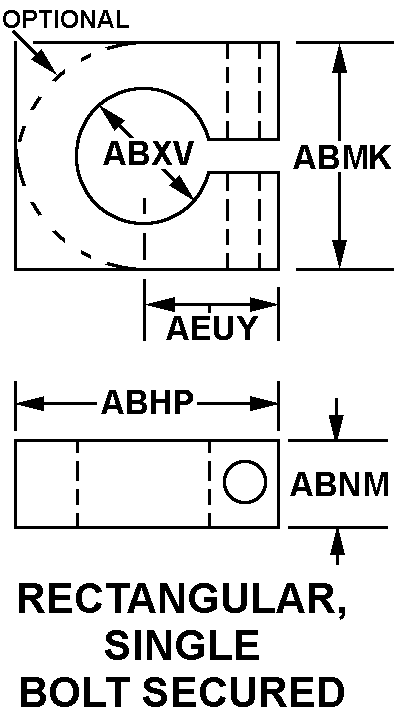
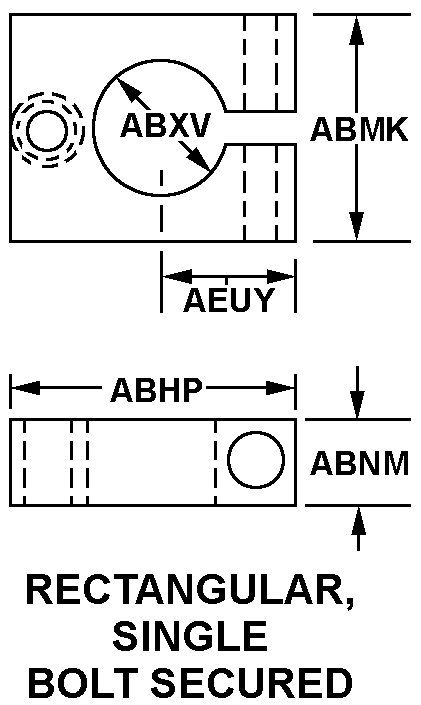
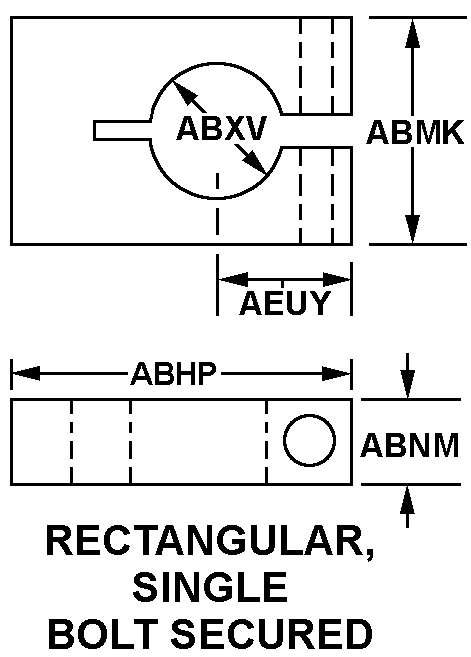
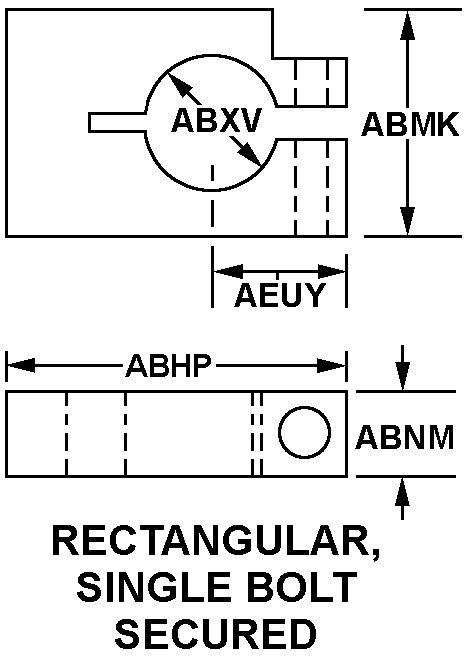
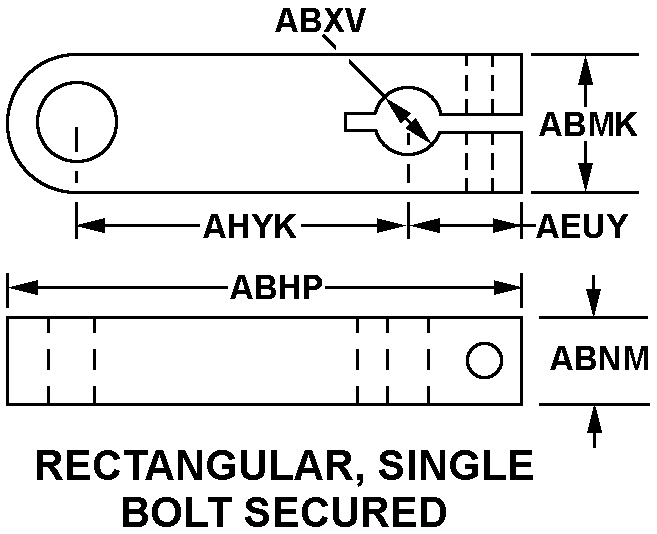
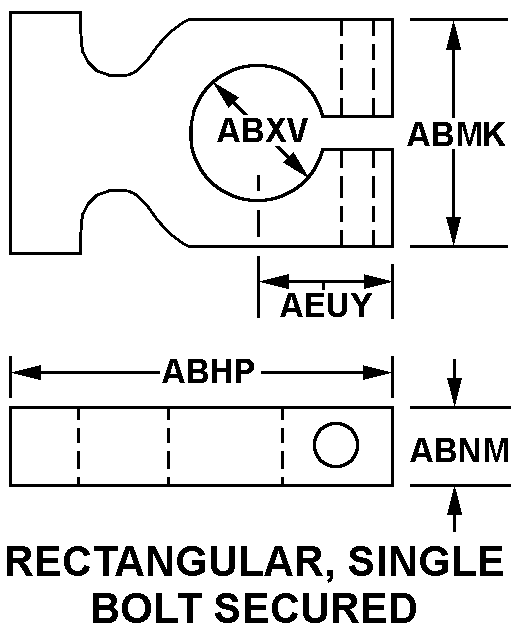
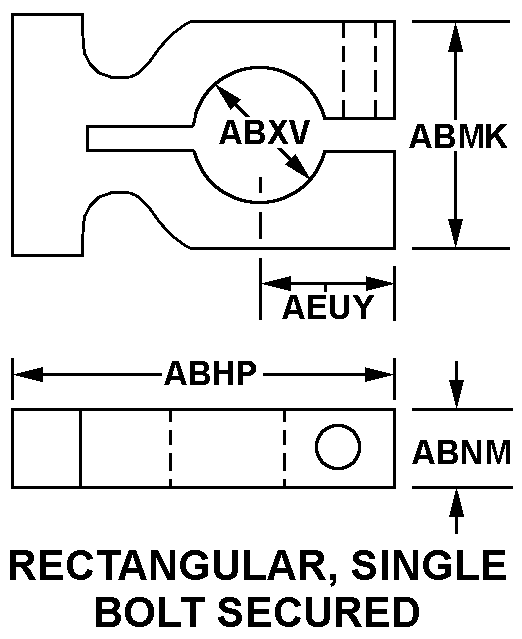
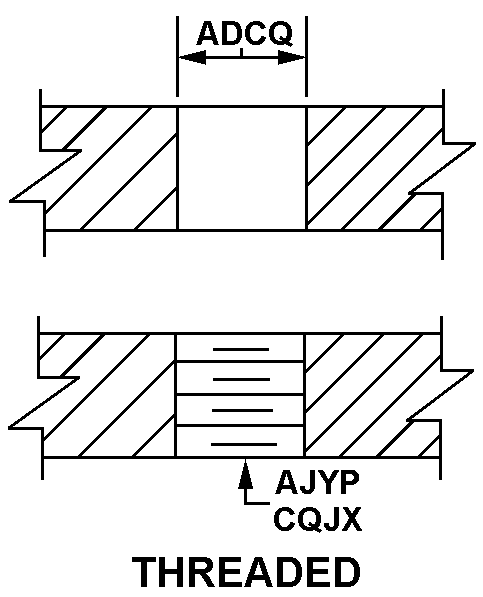
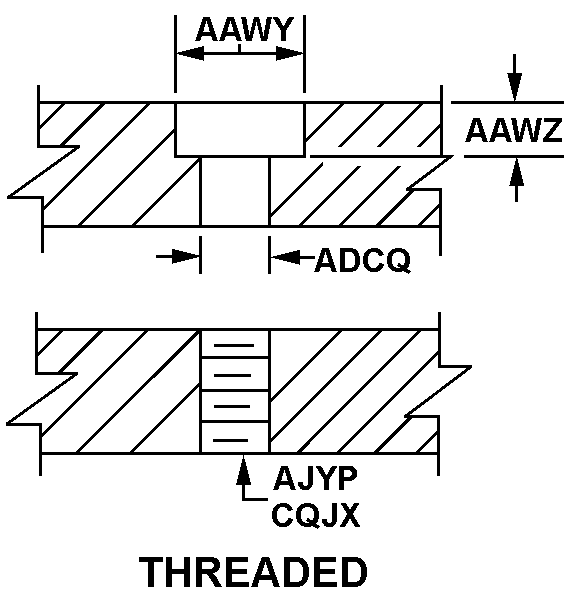
Definition Definition of approved item name (AIN): "CLAMP,HUB"
An item designed to be mounted around the extended hub portion of a gear, wheel, or the like, to retain it securely to a shaft by compressing the slotted hub body. The item may also be used to clamp around a shaft, or the like, to prevent end motion or to retain it in position. Its compression quality is derived from a screw(s) or bolt(s) which may be a part of the item of supply. For items designed to secure directly to a shaft by use of setscrews, pins, or the like, see collar, shaft. Excludes clamp, loop.
3040-00-618-1941 Material Hazmat, Precious Metals, Criticality, Enviroment, and ESD
Indicates there is no data in the hmirs and the nsn is in a fsc not generally suspected of containing hazardous materials.
Precious metal content is unknown
The item does not have a nuclear hardened feature or any other critical feature such as tolerance, fit restriction or application.
Identification Codes
HMIC: Hazardous Material Indicator Code. A one position code that identifies a hazardous item.
PMIC: Precious Metal Indicator Code. A one position code which identifies items that have precious metals as part of their content. precious metals are those metals generally considered to be uncommon, highly valuable, and relatively superior in certain properties such as resistance to corrosion and electrical conductivity.
ESD: Electrostatic Discharge. Indicates if an item is susceptible to electrostatic discharge or electromagnetic interference damage. electrostatic discharge damage occurs when an accumulation of static electricity generated by the relative motion or separation of materials is released to another item by direct contact. electromagnetic interference damage occurs when an item comes into proximity with an electrostatic or magnetic field.
ENAC: Enviromental Attribute Code. Identifies items with environmentally preferred characteristics.
CRITL: Criticality Indicator Code. Indicates an item is technically critical by tolerance, fit, application, nuclear hardness properties, or other characteristics.






